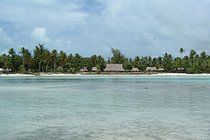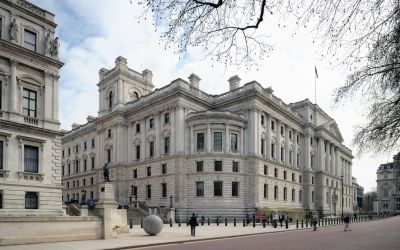Ambo Declaration offers hope for COP16
With the Tarawa Climate Change Conference in Kiribati ending on a high after the signing of the Ambo Declaration, Pacific Island nations hope negotiations will continue in the conference in Cancun.

With the Tarawa Climate Change Conference in Kiribati ending on a high after the signing of the Ambo Declaration, Pacific Island nations hope negotiations will continue in the conference in Cancun.
The Kiribati government summoned an international climate change conference with an aim to increasing awareness and empathy from major polluters and to mitigating the flooding of the island so that it will not need to relocate.
After intensive deliberations at the conference, held on 9th -11th November, delegates from 12 countries including the Maldives and the Marshall Islands, as well as major developing nations such as Brazil and China, agreed on 18 points and the signing of the Ambo Declaration. Following the failure to reach a treaty in Copenhagen last year, the outcome proposes optimistic prospects for the 16th Conference of Parties (COP16) starting today in Cancun, which has attracted low expectations.
Kiribati President Anote Tong told reporters that he is hopeful that the declaration will contribute to some positive steps forward in the Cancun negotiations.
"I am realistic enough to understand that the process will go on for quite some time, and the negotiations will carry on, but I also believe that there is sufficient conscience and good will existing in this global community at least to address the urgent issues now," said President Tong in a statement after the conference.
With the highest land mass point of Kiribati only two metres above sea level, the island's government and inhabitants will not tire of raising the climate crisis. It is a current and very pressing issue for this vulnerable nation and if no action is taken soon, inhabitants will be forced to leave their homeland.
"The message we are trying to make here very clearly is that we are running out of time and as long as the global community continues to debate, it may be too late for some countries." President Tong said.
Climate resilience in the small islands has been an inspiring example of adaptation in the developing world, as expressed by Nicholas Stern's influential Stern Review on the Economics of Climate Change, published in 2006. However, the need to go beyond standard adaptation methods, due to increased climate change, is now recognised.
Kiribati has become one of the first nations to take steps towards relocating the entire population to another country due to the threat of inundation. Although this will only be accepted as a last resort, it is recognised that it may be inevitable.
With very little use of fossil fuel and high susceptibility to climate effects, the Pacific island nations are vulnerable to the actions of the industrialised world. Therefore, their focus is on adapting to rather than mitigating climate change. To stabilise concentrations of greenhouse gases in the atmosphere coordinated action is required from other nations.
The push for improved international collective action for climate change is anticipated to hinder disastrous effects on the vulnerable small islands, which are plagued by higher tides and more frequent storms, which bring salt-water intrusion and coastal inundation. Fresh water supply and agriculture is degraded, and risks on public health are increasing.
The meeting in Kiribati followed a decision made by island leaders earlier in the year at the 19th Smaller Island States (SIS) Leaders' meeting held in Vanatu's capital, Port Vila, in August. Climate change was considered by all to be an urgent matter.
"The issue of climate change is the greatest moral challenge of the 21st century," said President Tong.
Following the Ambo Declaration, the SIS nations now anticipate increasing understanding and empathy for the world as a whole at COP16. With China having signed the declaration, there are some optimistic expectations for talks in Cancun, despite a recent statement from Beijing declaring that the country is unwilling to make a binding agreement.
The conference will be of ultimate importance to vulnerable SIS and the conference marks a desperate effort to unify climate efforts by all countries so that disastrous effects on entire nations can be mitigated.
Author: Marianna Keen | Climate Action
Image: luigig/ Flickr






